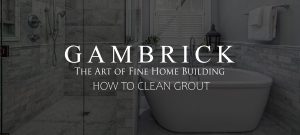Should A Detached Garage Be Insulated?
Should a detached garage be insulated? It’s such a common question we get asked that we decided to dedicate an entire article on the topic.
Building a detached garage is a wonderful addition to any home. With so many benefits to owning one, and so few potential drawback, they’re considered a safe way to increase home value. But you have to design and build them the right away to boost your curb appeal and get the highest possible return on investment. The best detached garage designs not only offer more storage but also amenities like a home office, work shop, gym, loft, or even more living space. Some of the most common questions we’re asked during the design phase are about insulation. Should a detached garage be insulated? Is it worth the money? How much does it cost? And what are the benefits? They’re all good questions that every homeowner will have to answer at some point.
In this article we’ll discuss each one and more.
Detached garage with breezeway and 2nd floor loft. Insulating this detached garage design is a must considering it includes living space.
Garage Insulation Regulates Temperatures
Many homeowners think insulation just keeps a house warm. While it does do that, it also helps keep homes cool in the summer. One of the most important jobs insulation does is regulate temperature. This is true even if the home isn’t heated or cooled. Temperatures inside will stay within a mid range and won’t reach the same extreme highs and lows an uninsulated space will. The same is true of a detached garage.
When you’ve got a well insulated garage temperature fluctuations won’t be as big.
In winter, even when it’s freezing outside, a well insulated garage will generally stay around 20 – 30 degrees. Metal tools will still be cold but it’s not uncomfortable to work in. And insulation helps prevent drafts. It shouldn’t be a problem with a new garage but if yours is older and drafty then you’ll notice a big difference. However insulating a garage won’t warm it up. So stuff like paint and tubes of caulk will still get ruined when it gets extremely cold out. It just won’t be as hot or cold inside the garage as outside.
Summer temperatures inside the garage will stay in the 70s. Even when it’s 100 degrees outside, inside a well insulated garage you’ll be comfortable.
- If you work in the garage during cold winters, even a small electric heater could get you a steady 70 degrees if it’s well insulated.
- The same benefit is there in the hottest summers. Get to 67 degrees with just a small window ac or stay cool with a simple fan.
Insulation is a protective layer around the entire detached garage that’s keep out extreme weather. Even if you don’t work in the garage, getting in and out of your car in winter and summer months will be a lot more comfortable.
How Insulation Helps A Detached Garage Regulate Temperate
The main purpose of insulation is to slow heat transfer through the walls and ceiling to the outside, and vice verse. Insulation doesn’t generate heat. But it helps control it. That’s a huge benefit in both winter and summer. Extreme hot air will stay out of the garage and so will the heat created from constant sun. In winter, extreme cold air will stay outside and any heat within the garage will stay in. This includes your own body heat or a running engine.
Insulation works best in climates that see extreme temperature swings. If you live in Southern California here it’s always 70 with no humidity then insulating the garage won’t be as big a concern. However if you live in Arizona, Alaska or here in New Jersey, then it’s an issue.
If your garage is cold then it’ll still be cold even after you add insulation. It just won’t be as cold. The same is true when it’s hot out. it’ll still be hot in the garage but not as hot as outside.
Insulation helps regulate temperature and keep it in the comfortable mid range. It doesn’t create or alter it in any way. If that’s your goal then you’ll also need some sort of HVAC system.
Simple detached garage in the backyard. Insulating this garage would make it far more comfortable in both the winter and summer months.
What Does Insulating A Detached Garage Cost?
It’s hard to say because it depends on a couple of key factors that we’ll list below. The way you price out an insulation job is by square foot of wall or ceiling space. For example Owens Corning R-19 insulation is about $65 per batt which covers around 85 sq. ft. That works out to around $1.50 per sq. ft. when you factor in waste and staples. For a 20′ deep x 10′ high garage wall that’s $300. Your average 2 car single story garage ends up costing around $1200 – $1500.
Here are the important cost factors to consider:
- The R-value of your insulation. R-13, R-19, R-21 and pretty standard for wall but we go all the way up to R-38 in some ceilings. Each type has a different cost.
- The type of insulation matters too. Batt has a different price than blown in or foam.
- Added features in the insulation also add to the cost. Things like extra soundproofing for example.
- Quality also matters. As with most things you can but, some brands are better than others.
Insulation isn’t that expensive and makes a good DIY project. Just make sure to wear the required safety equipment. We recommend installing more than you think you’ll need just in case. It won’t cost much more to put R-19 in the walls instead of R-13 so you may as well do it. Assuming you have enough wall thickness.
The higher the R-value the thicker the insulation gets. And if you squeeze it you actually lessen the R-value so don’t do it. The batt has to fit inside the cavity without being pinched. So use as thick an insulation as you can.
Don’t skimp on quality either. The better brands really are better and they’re not that much more expensive.
Additional Garage Features Require Insulation
When clients ask us if a detached garage should be insulated the first thing we do is find out what they’ll be using the garage for. Some uses require insulation whether you like it or not and some don’t. If your garage is just a big unfinished storage shed then you may not need it. But if it’s a workshop your in every day then you’ll probably want to include it.
Then we look at the local climate. The temperature outside is a big factor. That’s why building energy codes vary from place to place. If your detached garage is in Southern California where it’s 70 degrees and sunny every day you’ll have different requirements than if your garage was in Alaska.
Detached garage designs can include all sorts of additional features. Things like a home gym, office, work shop, pool house, or home based business. If you have any of these added features in your detached garage then you’ll need insulation.
And what about other things like a bathroom or even just a sink? If you’ve got any plumbing in your garage and you live in a cold climate then you’ll need insulation to prevent the pipes from freezing.
Some detached garages even include living space. If you’ve got aloft or apartment then you’ll need just as much insulation as the home. Any living space, even if it’s in a detached garage, should follow the same building codes as the house.
Garage Insulation Helps Regulate Humidity (RH)
Aside from regulating temperature inside the garage, insulation also helps manage humidity. Relative Humidity levels, also known as RH, measures the amount of moisture in the air.
High or low amounts of humidity can create all sorts of issues and even damage. Depending on what you use your garage for this could be a very serious problem or no big deal.
Should a detached garage be insulated to help control humidity levels? It depends on what you use the garage for. But 99% of the time I’d say yes. Even if regulating humidity level isn’t a big deal when you build your detached garage, some day you may want to store something precious, or use the garage for some other purpose where humidity could be a problem. I’d recommend playing it safe and planning ahead by including insulation.
Potential problems Caused By High Or Low Garage RH Levels
- If you’ve got a classic car then it’s not a good idea to store it in a room with high humidity. Moisture in the air can collect on metal surfaces and potentially cause rust. How quickly and how much your car rusts depends on the amount of moisture in the air. Levels above 60% increase the chance of mold, mildew, insects and rust.
- Low levels of humidity can be bad too. RH levels below 40% can dry out leather and wood, causing them to crack. If you have a wood shop in your garage or work with leather then you’ll want some moisture in the air. Insulation helps keep RH at comfortable levels.
- High or low humidity levels can potentially damage wiring inside a classic car.
- High humidity can even damage electronics. It can alter the conductivity inside the device, leading to damage, malfunction, and possibly corrosion. Condensation becomes a problem when RH problems are too high. On the other hand, very low humidity can cause components to become brittle.
- High RH levels are generally consider to be uncomfortable. If you use your garage as a gym, an office, a workshop or a place to hang out and work on cars, most people would prefer it wasn’t overly humid.
- Humidity is very bad for storing wine, cigars, comic books, papers, cards or artwork. If your a collector of just about anything then you’ll want to control humidity levels.
Controlling humidity levels inside your detached garage with insulation can be important for preventing damage to whatever your storing. It also helps a lot in terms of making the garage more comfortable to hang out and work in.
Huge detached garage with 2nd floor apartment. A garage design like this not only needs insulation but also a full HVAC system.
Garage Insulation Is a Sound Barrier
Did you know one of the added benefits of insulation is soundproofing? Insulating your detached garage provides a sound barrier that stops sound from exiting and entering your garage. It doesn’t stop 100% of the sound but most every day sounds will be stopped. Even loud sounds like banging drums, workout music, power tools or a motorcycle will be lowered quite a bit. It makes a big difference if your doing anything noisy inside the garage.
And don’t forget that soundproofing insulation also helps keep sound out of the garage. It can come in handy if you have a home office and want a quiet place to get some work done. Or maybe you have a garage apartment in a loud area and just need to get some sleep.
In addition to insulation being sold in a variety of R-values there are also varying degrees of sound proofing. Some brands even make insulation batts specifically designed to be a sound barrier in case you need a soundproof room.
For most clients the soundproofing offered by standard insulation is more than enough. But it’s good to know there are options out there if you think you’ll need more.
Soundproof insulation is exactly the same as standard batts. However it’s thicker and made from a different material that’s designed to both insulate and block sound.
Don’t Forget The Garage Doors, Entry Door And Windows
If you plan on including insulation in your detached garage don’t forget the garage doors, entry door and windows.
Although there would still be plenty of benefits to adding insulation to the walls and ceiling without insulated doors and windows, an HVAC system wouldn’t be as effective and humidity control won’t be as good. Basically every benefit you get from wall and ceiling insulation would still be there only it’ll be less effective. This is especially true if you’ve got living space in the garage that’s controlled by an HVAC system.
The inclusion of insulated windows and doors has the most benefit when your trying to control and regulate the temperature inside your detached garage with HVAC.
Some of the benefits of garage insulation will still be there. Things like soundproofing, humidity control and regulating extreme levels of hot and cold. However the amount of control you’ll have will be less and so will the benefits of insulation.
In order to regulate humidity and soundproof a room you need a tight seal. That comes from good quality insulated windows and doors.
And if you want to control temperatures with an HVAC system then insulated windows and garage doors are a must.
HVAC Systems Require Insulation
If your planning on including any type of HVAC system, either air conditions or heat, then don’t bother if your not including insulation. It’ll be like burning money.
In for any HVAC system to work properly then a tight seal is required. That include insulation in the walls and ceiling and good quality, insulated windows and doors. Without this type of seal, any conditioned air would just flow to the outdoors. Your HVAC system would run all day in order to keep up which would cost a fortune and be very uncomfortable.
The idea of any good HVAC system, which includes the ones we install in a detached garage, is to adjust inside air temperature and then hold it there with as little effort as possible.
This includes humidity. Any good wine cellar has a tight seal and HVAC system. If your storing wine in your garage, or any other item that could be damaged by humidity, then you’ll need insulation.
For most detached garages and HVAC system won’t be needed. Including insulation and good quality windows and doors will be more than enough. However if you have additional features like a home gym, office or living space, then HVAC is probably a must have.
Is Insulating A Detached Garage Worth The Money?
After we’re asked if a detached garage should be insulated, the next question is always, is it worth the money?
And it really depends. If we had to give a blanket one size fits all answer then we’de say yes. With so many potential benefits and no real drawbacks why not include it just in case. It’s not that expensive compared with the cost of building the garage. If your spending $30,000 building a new detached garage why not spend another $1200 to insulate it just in case. One the garage is sheetrocked you can’t go back and do it later unless you spend even more on demo and redoing the sheetrock. It makes sense to us to do it all the first time.
Another benefit is resale value. Even though you may not want the garage insulated your potential buyer might. It’s not worth losing a sale over.
Insulation is another great selling point. An insulated detached garage is a feature that could make your home stand out in a crowded real estate market.
However it really all depends on what your using the garage for. If your not concerned with the ROI and are just thinking practically then you may not need it. If all your using the garage for is a storage shed then it won’t matter much. Unless of course your storing wine, cigars, artwork, papers, comic books, antique cars, or other valuable collectibles that may be damaged by humidity. That’s assuming you live in a humid climate.
So you see, the answer to is insulating a detached garage worth it, is situational? But in general we would say yes.
Summary: Should A Detached Garage Be Insulated? Is It Worth it?
A detached garage is a great addition to just about any home. But should it be insulated and if so, is it worth the money? In general, to both questions we say yes. Insulation isn’t that expensive and has all sorts of added benefits that when compared with the low cost make it a good idea and well worth the cost.
I hope the info, ideas and pictures in this article helps you with your next garage design.
If you have any questions or comments e-mail us any time. We’d love to hear from you.























